-
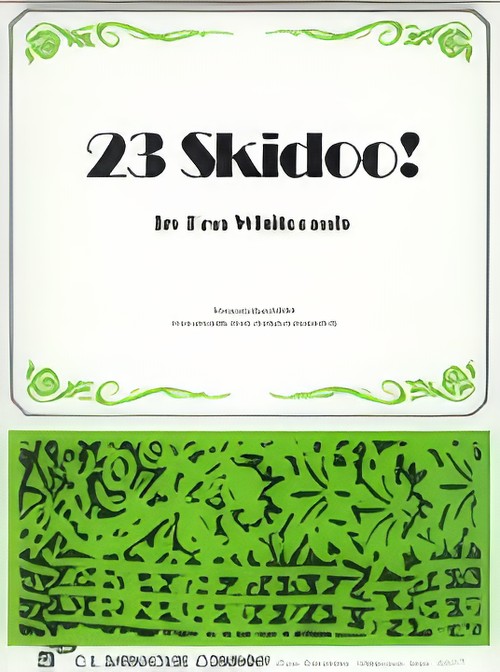 £60.00
£60.0023 Skidoo! (Concert Band - Score and Parts) - Whitcomb, Kenneth G.
The tempo indication is ``Bright vaudeville tempo'' and vaudeville it is! A real show stopping finale using smearing trombones, sax quartets and woodblock for a fun-filled look at yesteryear.
Estimated dispatch 7-14 working days
-
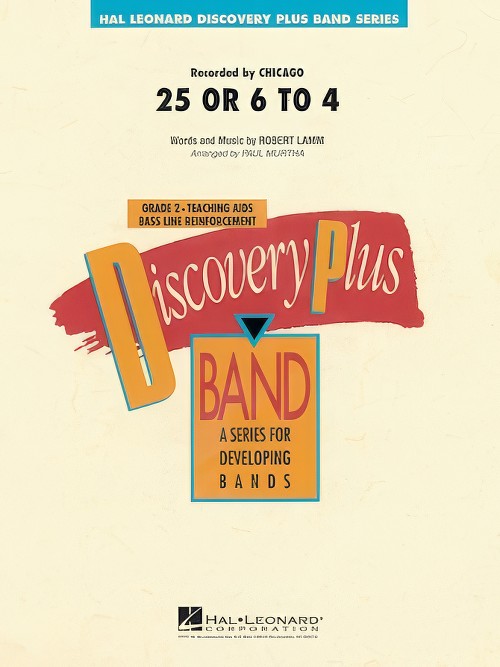 £54.99
£54.9925 or 6 to 4 (Concert Band - Score and Parts) - Lamm, Robert - Murtha, Paul
From the early years of the group Chicago, this is probably their most driving and energetic rock hit. A solid chart for young bands.
Estimated dispatch 7-14 working days
-
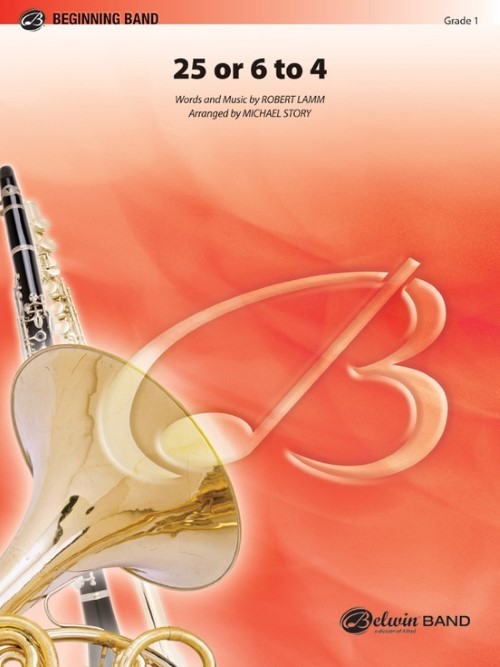 £57.00
£57.0025 or 6 to 4 (Concert Band - Score and Parts) - Lamm, Robert - Story, Michael
This arrangement of 25 or 6 to 4, one of jazz-rock band Chicago's biggest hits, will make your band sound huge while bringing this classic pop tune to life for your beginners!Duration: 2.15
Estimated dispatch 7-14 working days
-
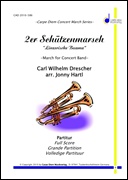 £41.95
£41.952nd SCHUTZENMARSCH (Intermediate Concert Band) - Drescher, Carl Wilhelm - Hartl, Jonny
Duration: 2:00
Estimated dispatch 7-14 working days
-
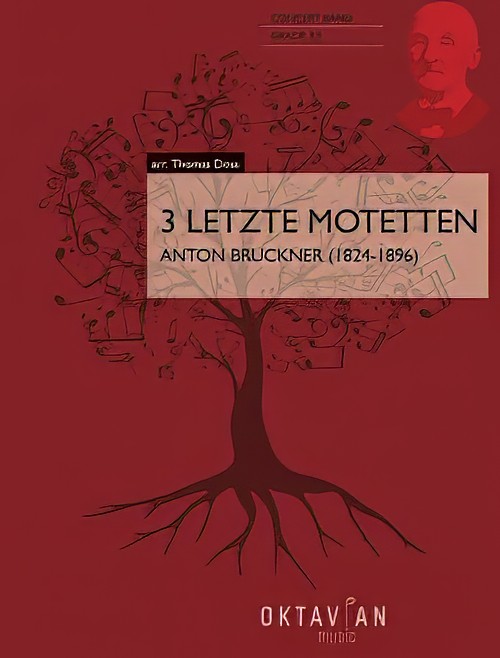 £123.20
£123.203 Letzte Motetten (Concert Band - Score and Parts) - Bruckner, Anton - Doss, Thomas
Anton Bruckner (b. 4.9.1824, Ansfelden, d. 11.10.1896, Vienna) didn't have it easy. Throughout his life, the Austrian composer was plagued by self-doubt. Anton Bruckner came from a simple, rural background. After the death of his father, he was accepted as a choirboy at the monastery of Sankt Florian in 1837. After several years as a school assistant and his own organ and piano studies, he first worked as organist in St. Florian, then from 1855 as cathedral organist in Linz. Introduced to music theory and instrumentation by Simon Sechter and Otto Kitzler, he discovered Richard Wagner as an artistic role model, whom he admired throughout his life and also visited several times in Bayreuth. In 1868 Anton Bruckner became professor of basso continuo, counterpoint and organ at the Vienna Conservatory; ten years later court organist; and in 1891 finally honorary doctor of the University of Vienna. He was considered an important organ virtuoso of his era, but had to wait a long time for recognition as a composer. It was not until Symphony No.7 in E major, composed between 1881 and 1883, with the famous Adagio written under the effects of Wagner's death, that he achieved the recognition he had hoped for, even if he was reluctant to accept it given his inclination towards scepticism and self-criticism. Anton Bruckner was a loner who did not want to follow a particular school or doctrine. He composed numerous sacred vocal works, such as his three masses, the Missa Solemnis in B flat minor (1854), the Te Deum (1881-84) and numerous motets. As a symphonic composer, he wrote a total of nine symphonies and many symphonic studies from 1863 onwards, tending to revise completed versions several times over. Bruckner's orchestral works were long considered unplayable, but in fact were merely exceptionally bold for the tonal language of their time, uniting traditions from Beethoven through Wagner to folk music, on the threshold between late Romanticism and Modernism. Anton Bruckner composed about 40 motets during his lifetime, the earliest a setting of Pange lingua around 1835, and the last, Vexilla regis, in 1892. Thomas Doss has compiled some of these motets in this volume for symphonic wind orchestra. These motets show many characteristics of personal expression, especially Bruckner's colourful harmony in the earlier works, which is in places aligned with Franz Schubert (changes between major and minor; and movements in thirds). Later works are characterised by many components which, in addition to the expanded stature of the movements, include above all a sense of the instrumentation as an outward phenomenon and the harmony as a compositional feature that works more internally. Some aspects of Bruckner's work are the result of his long period of study, which familiarised him not only with the tradition of his craft, but also gave him insights into the "modernity" of his time in such composers as Wagner, Liszt and Berlioz. From this developed his personal standpoint, which always pursues the connection between the old and the new.Duration: 14.00
Estimated dispatch 7-14 working days
-
£68.99
3 Pops 4 You Wind Band Set (Score & Parts)
A Pop Festival in three parts: 1. Purple Pop - Great heavy rock with some modern sound here and there. Attention to the syncopation! 2. Pink Pop - A dreamy ballad with an open ending. 3. Plastic Pop - Finale with heavy percussion! 05:00
Estimated dispatch 7-14 working days
-
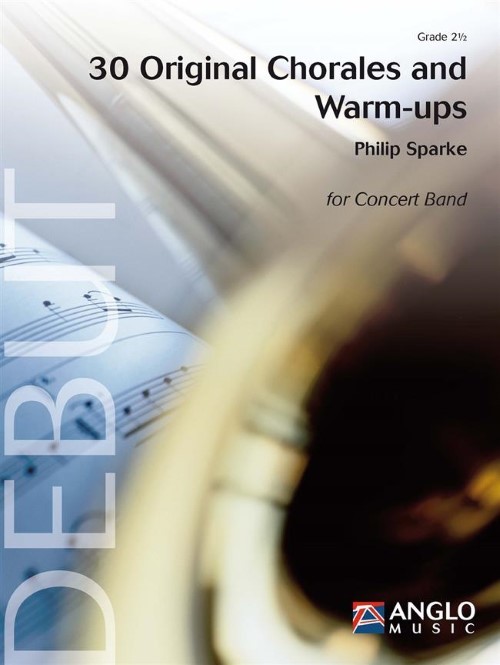 £134.99
£134.9930 Original Chorales and Warm-Ups (Concert Band - Score and Parts) - Sparke, Philip
These 30 Original Chorales and Warm-Ups have been designed to develop the most important aspects of band playing, by providing material that can be used at the start of a rehearsal to test balance, dynamics, tuning, flexibility and articulation. Band directors are encouraged to adapt them to address the specific needs and challenges of their ensembles. Dynamics and tempo indications are not given and should be chosen by the director as required. All the chorales are strictly four-part. This multi-purpose collection is an essential purchase for every ambitious band!
Estimated dispatch 7-14 working days
-
 £45.95
£45.954 MINUTES (Concert Band)
Right off Madonna's newest Hard Candy album, the pop icon shares the mic with Justin Timberlake in this driving upbeat tune. Get this one on your band's music stands right away. Every section has a shot at the energized melody line built over the recognizable rock beat. Right off the airwaves... it's today's pop... now for your intermediate band.
Estimated dispatch 7-14 working days
-
 £101.50
£101.5042nd STREET TO BROADWAY (Intermediate Band) - Woodfield, Ray
Medium
Estimated dispatch 7-14 working days
-
£139.99
4Evers Wind Band Set (Score & Parts)
4Evers is a brilliant selection of four marches composed by Harm Evers, the king of march music! Includes the titles: In Festive Mood, Parade of Sails, Time Square and Pioneers March. 12:00
Estimated dispatch 7-14 working days
Searching for Brass Band Music? Visit the Brass Band Music Shop
